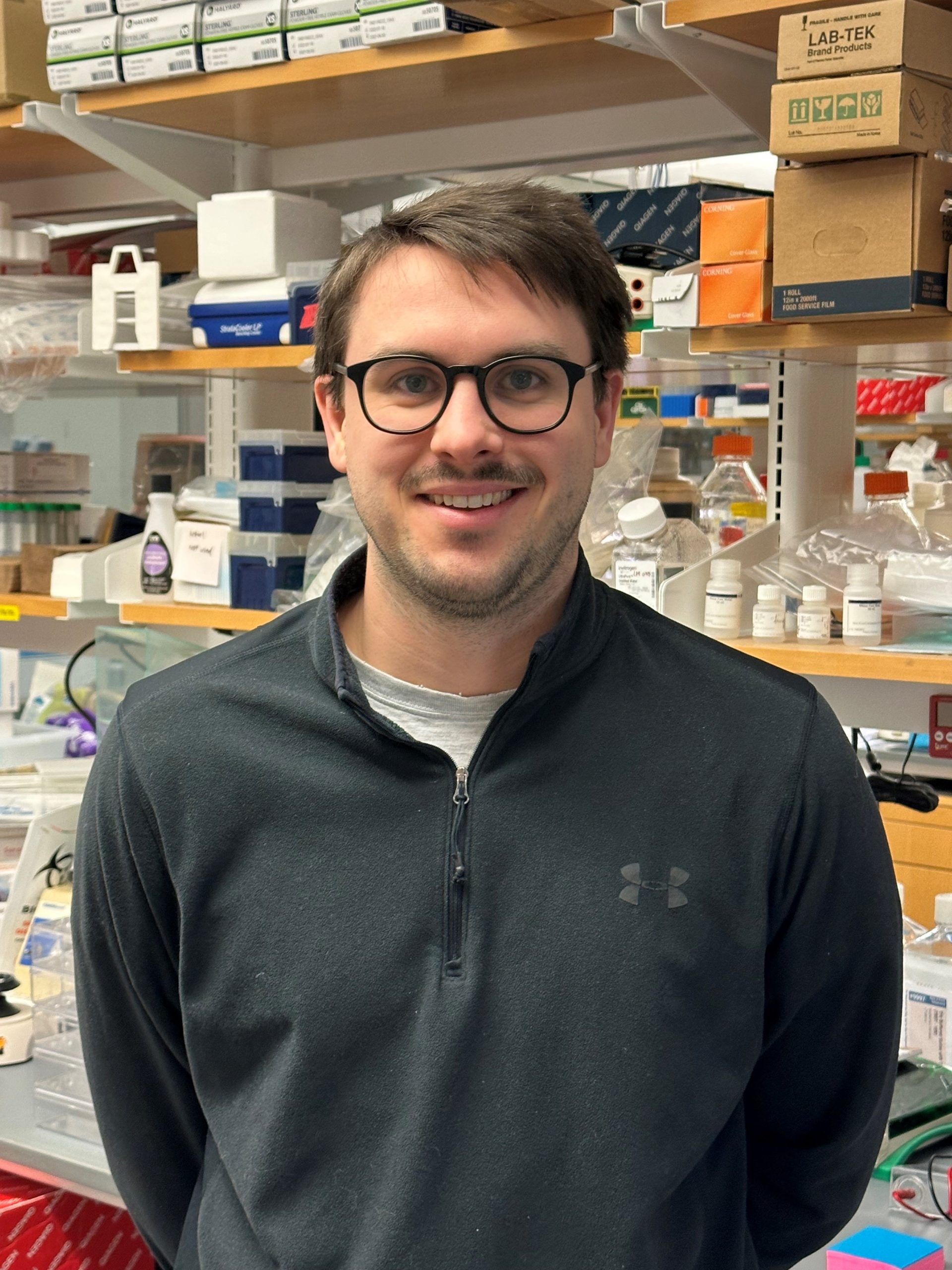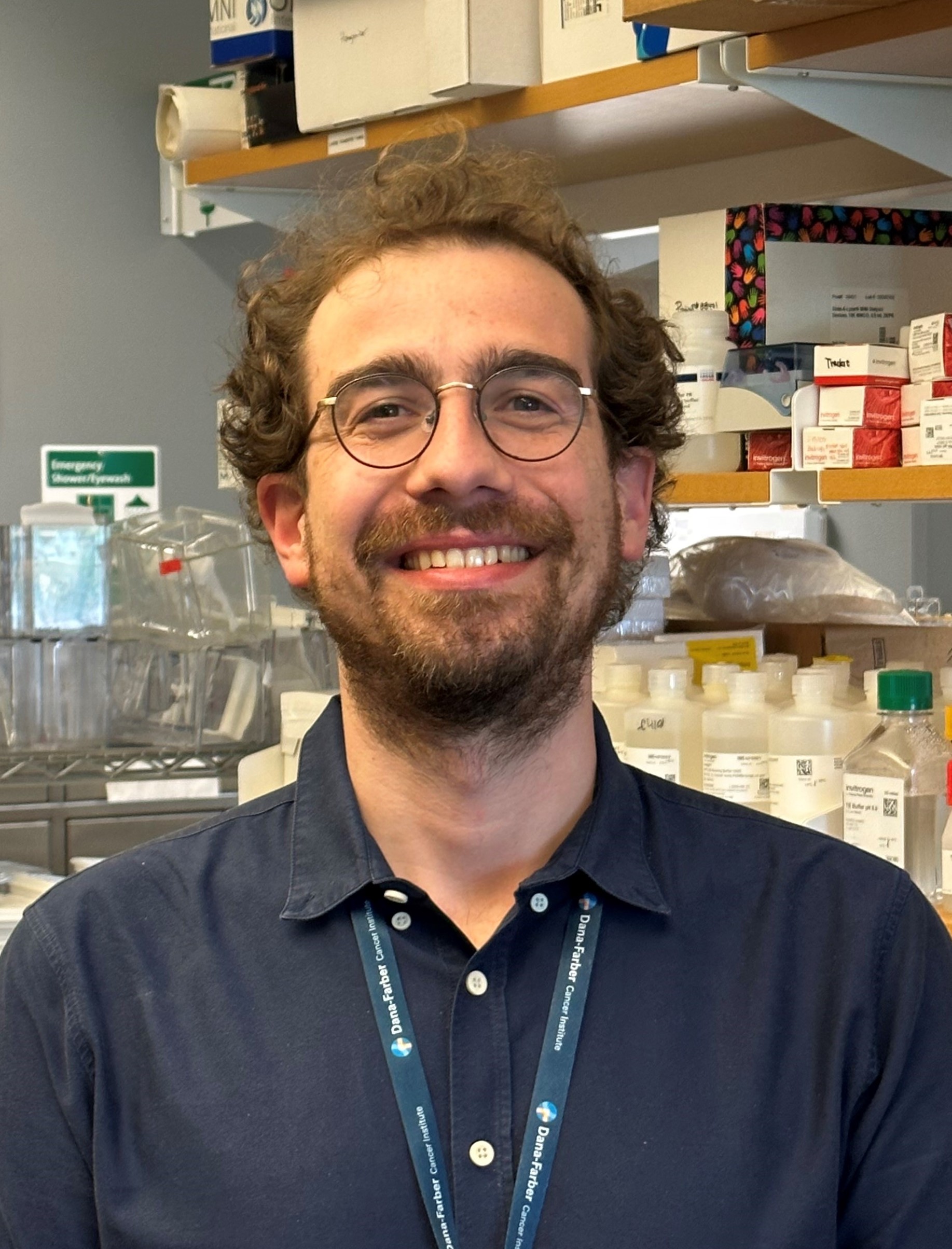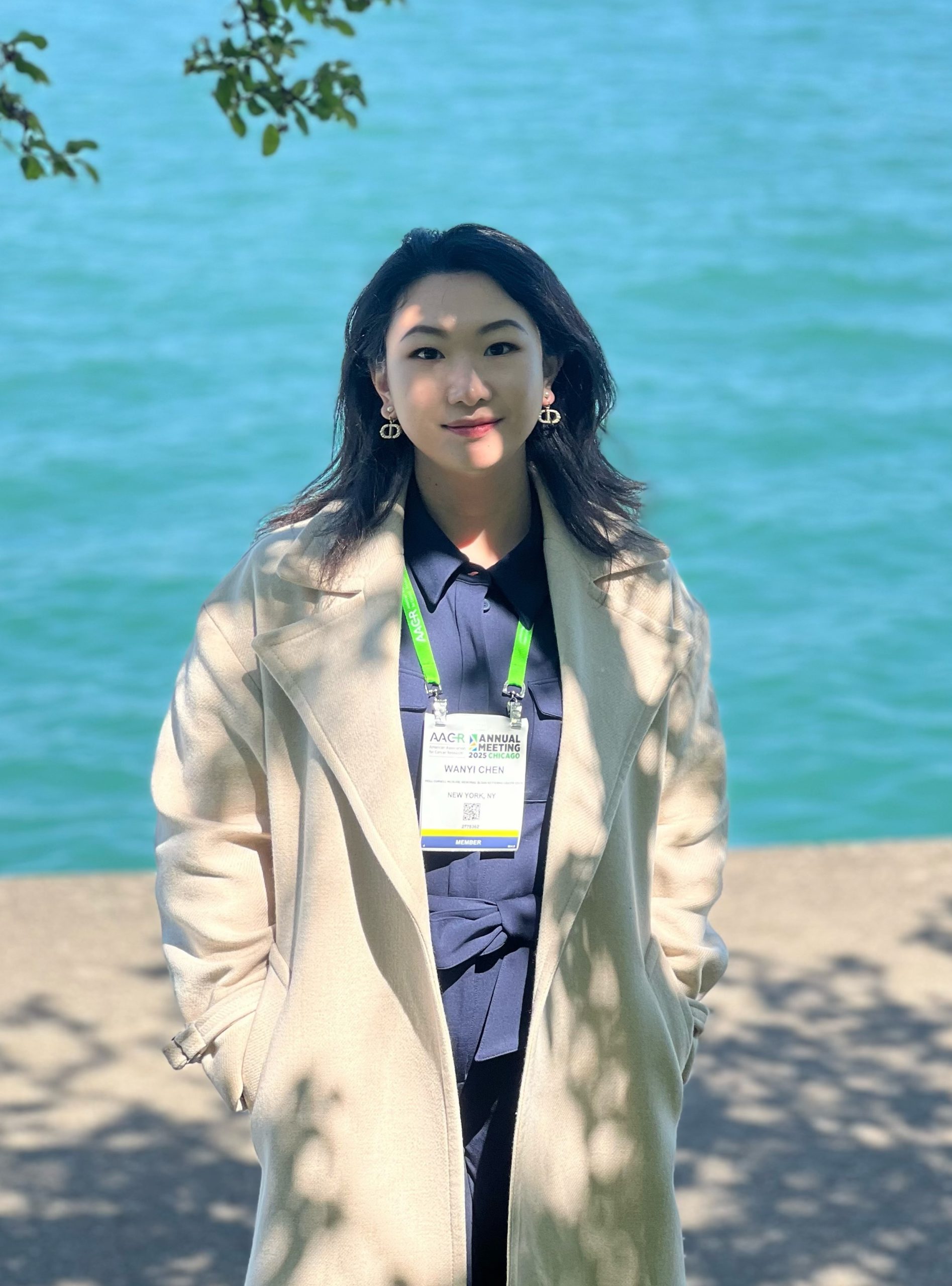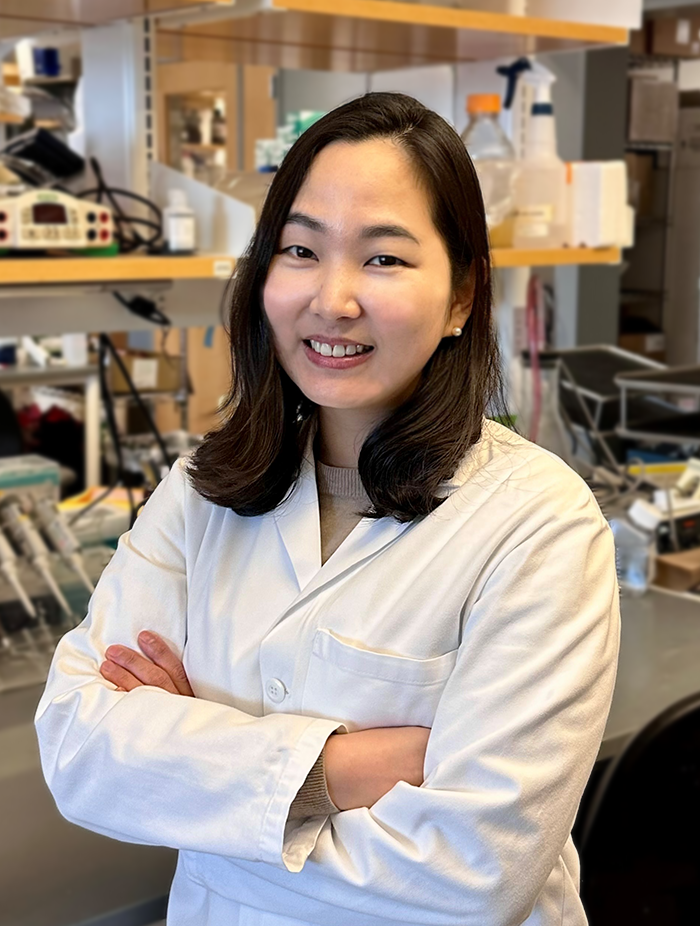Postdoctoral fellows

Sean Lenahan, PhD
Sean Lenahan is focused on characterizing the role of individual TEAD isoforms on promoting a drug tolerant persister state in EGFR-mutant lung cancers to better inform drug development. Additionally, Sean aims to use single-cell multi-omics to further elucidate how tumor cell heterogeneity can impact resistance to targeted therapies in EGFR- and KRAS-mutant lung cancers.
Sean Lenahan, PhD
Sean Lenahan is focused on characterizing the role of individual TEAD isoforms on promoting a drug tolerant persister state in EGFR-mutant lung cancers to better inform drug development. Additionally, Sean aims to use single-cell multi-omics to further elucidate how tumor cell heterogeneity can impact resistance to targeted therapies in EGFR- and KRAS-mutant lung cancers.

Marika Koivu, PhD
Marika Koivu studies the mechanisms of acquired and intrinsic resistance in lung cancers driven by various oncogenic drivers, focusing on combination therapies involving targeted treatments and TEAD inhibition. Identification of potential targetable vulnerabilities may inform the development of novel therapeutic strategies. In addition, she is involved with the development of in vitro 3D models of lung cancer.
Marika Koivu, PhD
Marika Koivu studies the mechanisms of acquired and intrinsic resistance in lung cancers driven by various oncogenic drivers, focusing on combination therapies involving targeted treatments and TEAD inhibition. Identification of potential targetable vulnerabilities may inform the development of novel therapeutic strategies. In addition, she is involved with the development of in vitro 3D models of lung cancer.

Antja-Voy Hartley, PhD
Antja-Voy Hartley focuses on designing rational and novel combination treatments to overcome resistance to EGFR-targeted therapies in EGFR-mutant lung cancers. Additionally, she explores options for targeted therapies for the treatment of mesotheliomas by linking the tumors’ genomic landscape to potential therapeutic vulnerabilities.
Antja-Voy Hartley, PhD
Antja-Voy Hartley focuses on designing rational and novel combination treatments to overcome resistance to EGFR-targeted therapies in EGFR-mutant lung cancers. Additionally, she explores options for targeted therapies for the treatment of mesotheliomas by linking the tumors’ genomic landscape to potential therapeutic vulnerabilities.

Francesco Facchinetti, MD, PhD
Francesco Facchinetti studies features and liabilities of drug tolerant persister (DTP) cells in the setting of lung cancers driven by EGFR mutations and other oncogenic drivers. In addition, Francesco works on novel therapies acting as EGFR degraders.
Francesco Facchinetti, MD, PhD
Francesco Facchinetti studies features and liabilities of drug tolerant persister (DTP) cells in the setting of lung cancers driven by EGFR mutations and other oncogenic drivers. In addition, Francesco works on novel therapies acting as EGFR degraders.

Wanyi Chen, PhD
Wanyi Chen investigates mechanisms of resistance to antibody–drug conjugates (ADCs), with a particular focus on anti-HER3 ADCs in non–small cell lung cancer (NSCLC), using both clinical data and preclinical models. She also studies key phenotypic and molecular changes in drug-tolerant persister (DTP) cells following EGFR tyrosine kinase inhibitor (TKI) treatment, aiming to identify novel therapeutic targets and develop effective combination therapy strategies.
Wanyi Chen, PhD
Wanyi Chen investigates mechanisms of resistance to antibody–drug conjugates (ADCs), with a particular focus on anti-HER3 ADCs in non–small cell lung cancer (NSCLC), using both clinical data and preclinical models. She also studies key phenotypic and molecular changes in drug-tolerant persister (DTP) cells following EGFR tyrosine kinase inhibitor (TKI) treatment, aiming to identify novel therapeutic targets and develop effective combination therapy strategies.
